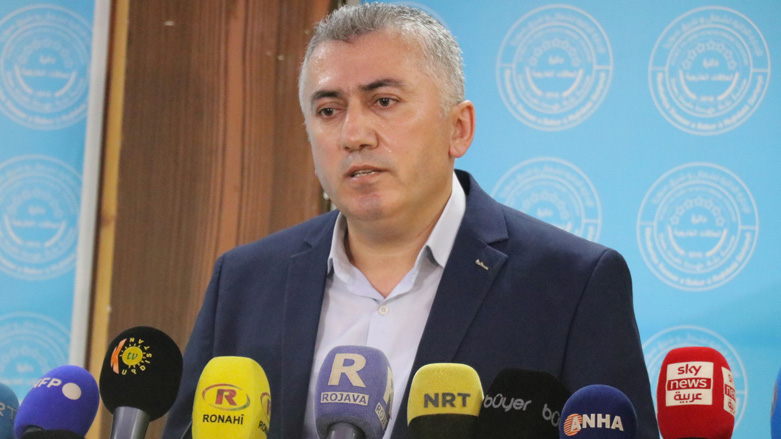Cholera outbreak kills 16 in northeast Syria

ERBIL (Kurdistan 24) – Since early September, 16 people have died of cholera in northern and eastern Syria, Dr. Jiwan Mustafa, head of the Health Authority in northeast Syria, told reporters on Wednesday, calling on the international community and humanitarian organizations for more support.
Amidst rising cases of cholera, AANES' Health Board held a press conference in Qamishlo yesterday. Jiwan Mustafa, the Health Board co-chair, stated that there were 2,867 suspected cases, 78 confirmed cases, and 16 deaths across NES to date, mostly in Deir ez-Zor. pic.twitter.com/oCvlbDWqrP
— Rojava Information Center (@RojavaIC) September 22, 2022
Dr. Jiwan Mustafa, the Health Board co-chair of the Autonomous Administration of Northeast Syria (AANES), stated that there were 2,867 suspected cases, 78 confirmed cases, and 16 deaths across Northeast Syria to date, mostly in Deir ez-Zor, the Rojava Information Centre (RIC) reported.
Read More: 'Drink it anyway': Syria water woes peak in cholera outbreak
10 people died in Deir ez-Zor, 2 in Raqqa, 2 in the Shaba region (in northern Aleppo) and two in the Hasakah province.
Moreover, Mustafa confirmed the presence of 'Vibrio cholerae', the bacteria which causes the cholera illness, in the Euphrates River.
He stated that if the situation turns into a pandemic, the Health Board does not have the capabilities to manage alone.
Dr. Mustafa also blamed Turkey for the decreasing water level of the Euphrates river, causing the spread of diseases Leishmaniasis and now Cholera.
Read More: Turkey continues to cut off water to Hasakah city: SANA agency
Therefore, he called on the international community to put pressure on Turkey to release more water.
“There is a big crisis in Hasakah because of the lack of drinking water. Most of the water that reaches the city comes from areas near the Euphrates River and comes in tankers that are not treated with chlorine.”
“This also causes the cholera disease to spread in the city. This is also a serious threat," he said.
Dr. Mustafa also called on the World Health Organization (WHO), the international community and non-governmental organizations to help and provide them with assistance.
He also called on all citizens of northeast Syria to follow health guidelines for self-protection.
The International Rescue Committee (IRC) in a press release on Wednesday also warned of a new crisis in Syria due to the cholera outbreak.
It said the suspected cholera cases as of 19 September have risen to 2,092 in the northeast of Syria since the outbreak was announced on 10th of September.
The cause of the cholera outbreak is suspected to be contaminated water from the Euphrates River, which is the main water source for between 800,000 -- 1.2 million people, the IRC said.
“A decade of conflict has left the health care system in Syria extremely fragile and severely under resourced, making it much harder to mobilize a response to any potential epidemics or outbreaks such as this,” Tanya Evans, the IRC's Country Director in Syria, said in a public statement.
“Despite the vast needs both levels of funding and the political attention required to address the crisis are diminishing. This outbreak of cholera demonstrates how now, more than ever, we must not neglect Syria."
